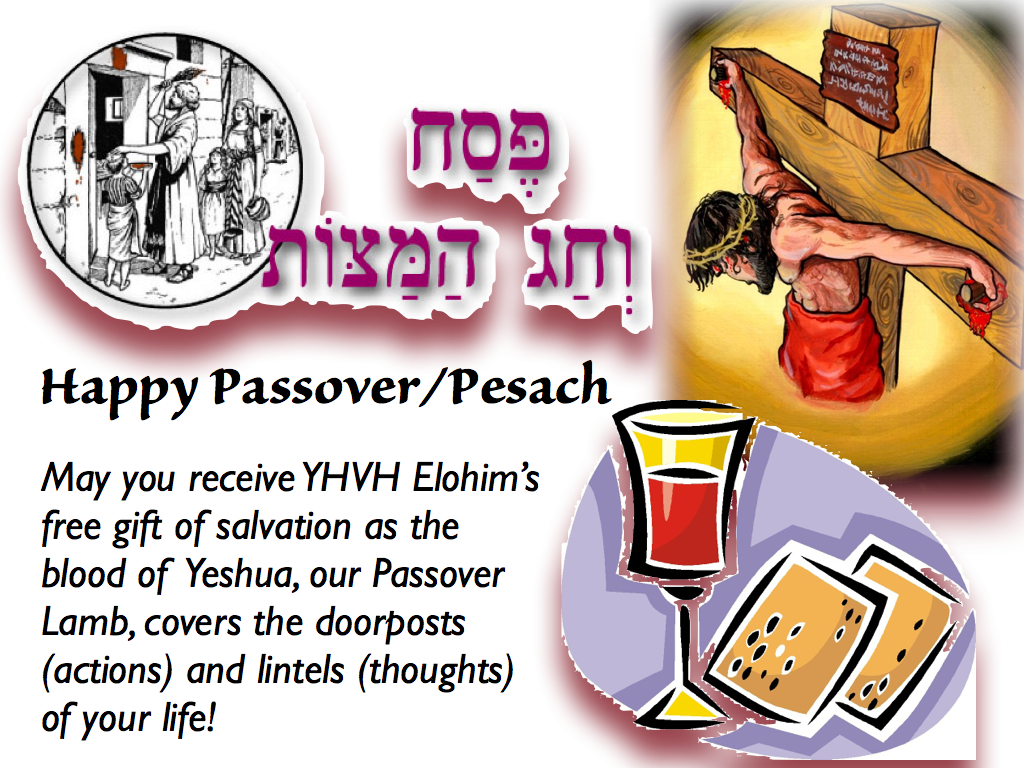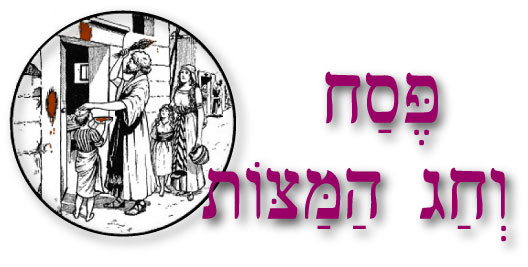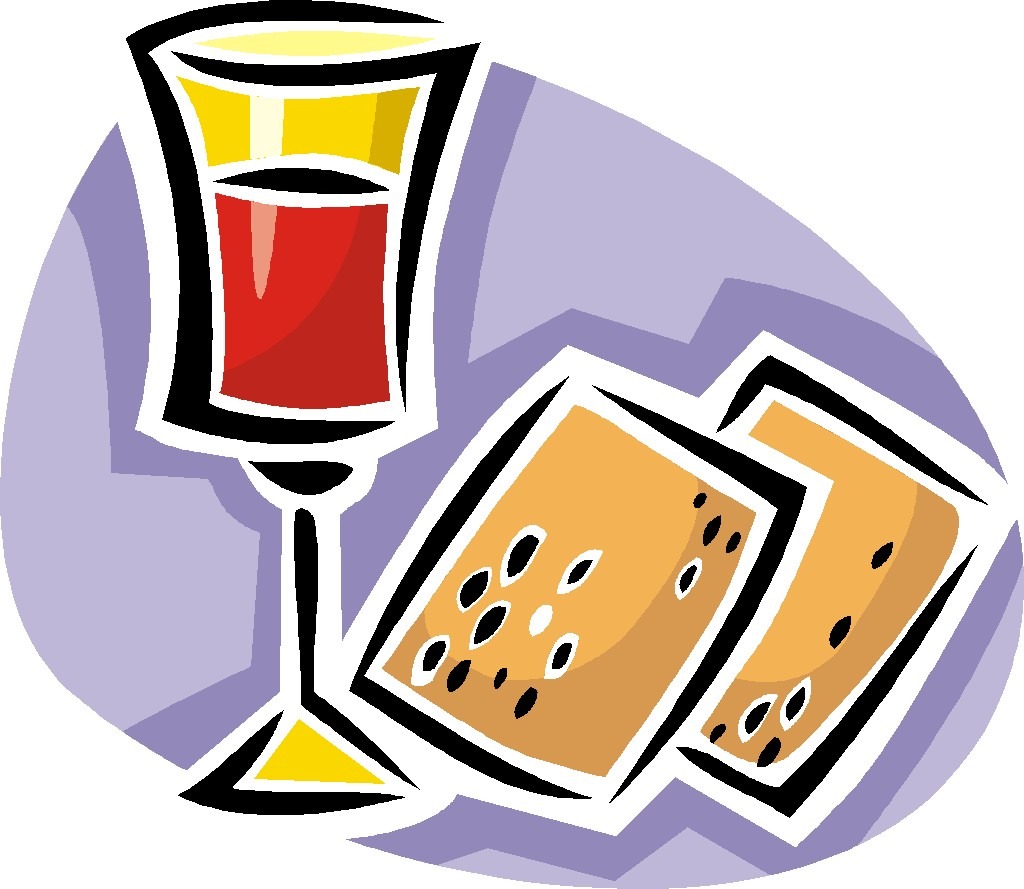Tag Archives: Pesach
Yeshua, a Box of Matzah & YOU
Preparing Ourselves for Passover
Passover is just around the corner—in a couple of weeks. Here’s a checklist to help you prepare for this festival that YHVH commanded his people to celebrate, and which Yeshua, the apostles and early church also celebrated, and which will be celebrated in the Millennium.

Repent of Sin and Get Under the Lamb’s Blood. As the children of Israel applied the lamb’s blood to the door posts and lintels of their house, so we must apply the sin-cleansing and Satan-defeating blood of Yeshua afresh to our lives (i.e. to our thoughts as represented by the door lintel and and to our hands or actions as represented by the door posts). This occurs as we repent of our sins, and pray for and receive YHVH’s forgiveness. He will then cover our sins over or wash away our sins by Yeshua’s blood (1 John 1:9; Rev 1:5).
In Egypt at Passover time, YHVH judged all those who had failed to put the lamb’s blood on the door posts of their houses. In other words, they weren’t under the blood of the lamb, but were still under the penalty of sin, which is death (Ezek 18:4; Rom 6:23). Any unrepented of sin in our lives brings the curse of death on us. To the degree that one has sin in their life is the degree to which the spirit of death has a legal claim on us. Now is the time to repent of sin by confessing it and seeking Elohim’s forgiveness under the blood of Yeshua and then forsaking that sin through YHVH’s grace (1 John 1:9).
Here are some things of which to repent.
- Pride. Do you always think that you’re right? Your opinion is what matters the most? Do you have a hard time with those who don’t see it your way, when you don’t get your way? Do you have a fit when people disagree with you? Do you criticize others and put others down (especially those who are closest to you)? Do you belittle, mock, scorn and ridicule others? Do you focus on other people’s faults? Do you have a hard time identifying any sins that you have committed? Are you proud of your humility? Are you proud of how Torah-observant you are (compared to others)? Are you overly defensive when someone corrects you or challenges your opinion? Do you blame others when things don’t go right instead of taking personal responsibility for your actions? Are you proud of (instead of grateful to YHVH for) your achievements in life? Do you constantly have to be talking about yourself? Is much of what you do, say and think focused on yourself? These are all signs of pride. Pride is self-idolization. Elohim hates pride and calls it an abomination (Prov 6:16–17).
- Ungratefulness and selfishness. Are you ungrateful? Are you discontent about your place in life? Do you always want more? Are your material possessions and personal belongings really important to you? Do you have a hard time giving things away? This is a form of self-idolatry, pride and idolization of things.
- The love of this world over love of YHVH and the things that matter to him. This is a form of idolatry. In this case, we’re concerned with what others think more than what Elohim thinks about things. Therefore, our thoughts and actions are geared at trying to please ourself and others instead of pleasing Elohim (Jas 4:4; 1 John 2:15).
- Sins of the mouth include mean, selfish, unkind, angry, impatient, egotistical words and gossip. This is idolization of self. What matters most is what I have to say, how I feel, my opinions and I have the right to say what I want when I want. This is also pride.
- The lack of the fear of Elohim. Are you more concerned with what others think than what YHVH Elohim thinks about something? Anything in our lives that we put ahead of Elohim is idolatry.
- Ask yourself this: In everything that I do and say, am I advancing the kingdom of Elohim and bringing glory to Yeshua or am I doing the opposite? Am I being a river of life to all those around me, or am I dragging them downward by being a purveyor of negativity and darkness? Are my words, thoughts and deeds leading people to the light of YHVH Elohim and to Yeshua or away from them?
Tell the Redemption Story. It is the responsibility of parents and elders to pass on to the next generation the Passover story (Exod 12:24–27). Explain how the Israelites were enslaved in Egypt (a metaphor for the world), to Pharaoh (a metaphor for Satan), and how YHVH delivered the Israelites from the judgment of the destroyer (YHVH’s judgment against sin) because they put the blood of the lamb on their doorposts (a picture of Yeshua’s sin-atoning death on the cross). In reality, this is the basic gospel message. This is what the Passover seder is all about and why we celebrate it.
Celebrate the Feasts. Prepare your heart and mind to obey YHVH by keeping his appointed times of Passover and Unleavened Bread. Are you willing to obey his commands pertaining to these observances? How much do you love him (John 14:15)? How much do you want to know him (1 John 2:6–7)? Celebrating YHVH’s feasts help us to love him and to know him better.
Examine Yourself. At this time of the year, we must each examine ourselves to insure that we will not be partaking of the cup of redemption (i.e. the communion cup) unworthily (1 Cor 11:28).
Rediscover the Cross. It is time to rediscover the cross of Yeshua again and your place at its foot. It is also time to rediscover the power of the resurrected Yeshua in one’s life. Marvel at the miracle of the resurrection and consider the fact that you have access to Yeshua’s resurrected life through faith in him and through the work of his Set-Apart Spirit as you obey the Word of Elohim.
A Time of Spiritual Awakening and New Beginnings. Passover occurs in the spring at the beginning of the biblical year. Spring is a time of new beginnings physically and spiritually. It’s the time of year to take stock of one’s life, assess any weaknesses and deficiencies you have, and then resolve to make the necessary changes. It is the time to make improvements through the power of YHVH’s grace, his Word, his Spirit all through a vibrant, daily relationship with Yeshua our Master and Savior.
The Season for Spiritual Housecleaning. It’s Time to Deleaven. Passover is time of spring cleaning and deleavening our physical houses (Exod 12:15–20) and removing the leaven of sin from our spiritual houses as well (Pss 26:2; 139:1, 23–24). We must root out and eradicate the old sin habits from the crevices and dark areas of our life. In Scripture, leavening represents sin, pride, hypocrisy and false doctrine. Do the sinful practices, evil habits and illicit delicacies of Egypt still hold sway on us? Do any unclean spirits or filthy habits still have control over us? It is time to take control of these sins and eliminate them and become wholly consecrated unto YHVH-Yeshua, his Word, his plans and purposes. It is time to seek first his kingdom and his righteousness (Matt 6:33). One can’t serve two masters at the same time (i.e. the world and the flesh) and expect to be pleasing to YHVH (Matt 6:24). It’s time to forsake all these things that drag us down spiritually and pull us away from our Father in heaven. It’s time to move onward and upward spiritually!
Time to Renew Our First Love For Yeshua. Take this time to rediscover the glorious beauty of Yeshua our Heavenly Bridegroom (Rev 2:4–5). Now is the time to rekindle our passion and zeal for Yeshua and to repent of spiritual lukewarmness (Rev 3:15–21).
Communion or the Lord’s Supper Explained in Its Hebraic Context
The Importance of Memorials and Symbols
Obedient and truth-seeking disciples of Yeshua will want to love him by keeping his commandments (John 14:12), and by teaching and doing everything he commanded (Matt 28:20). They will be following Paul’s example to imitate Yeshua (1 Cor 11:1) as well heeding John’s admonition “to walk just as [Yeshua] walked” (1 John 2:6).
With regard to obeying YHVH’s commands, symbols and memorials figure prominently in YHVH Elohim’s spiritual economy. Why is this? They are teaching aids. Physical humans need physical things to help them to comprehend spiritual truths and ideals. Using symbols, commemorations and memorials is a method of teaching and relates to pedagogy, which is “the method and practice of teaching, especially as an academic subject or theoretical concept.” A effective teacher endeavors to build bridges of understanding between what the student knows and what the teacher wants to teach the student— between the known and the unknown, between what the student understands now and what the teacher wants his students to learn. A successful teacher learns the skill of building bridges of understanding with his students to bring them to a higher level of understanding. The same is true of YHVH Elohim as we works with humans to teach them about spiritual things.
On a spiritual level, YHVH Elohim, our Heavenly Teacher, employes similar pedagogic or teaching techniques as he endeavors to bring men to a higher level of understanding heaven’s spiritual truths and realities. The use of symbols and memorials as teaching tools is essential to this process of teaching and learning.
The Bible is full of symbols and memorials that represent or point to something else and act as teaching aids to assist humans in learning about Elohim and what he requires of us. For example, Continue reading
How the First Passover Perfectly Pictured Yeshua the Messiah
For I am not ashamed of the gospel of Messiah, for it is the power of Elohim to salvation for everyone who believes, for the Jew first and also for the Greek. (Rom 1:16)
For the preaching of the cross is to them that perish foolishness; but unto us which are saved it is the power of God. (1 Cor 1:18)
Neither is there salvation in any other: for there is none other name under heaven given among men, whereby we must be saved [except the name of Yeshua the Messiah]. (Acts 4:12)
According to the laws of statistical probability, what are the chances of an event happening and then fifteen hundred years later another event occurring bearing an uncanny resemblance to the first one? Now suppose that not only did fifteen hundred years separate the two events, but that they occurred in two different countries several hundred miles apart, which in the ancient world considering the difficulties of travel and communications may as well have been halfway around the globe. Now suppose that the second event involved the death of a person, and that the events leading up to their death including the manner and timing of that death was beyond the control of the individual dying so that in no way could the person dying stage his death to mirror the first event. In fact, those killing the individual possessed no foreknowledge of the event that had occurred fifteen hundred years earlier. What are the chances of this occurring? Well beyond the laws of possibility!
This is not a fictional story! Truth is sometimes stranger than fiction. The details of these two events are chronicled in the pages of the Bible. The first event occurred in ancient Egypt and is recorded in the Book of Exodus chapters eleven and twelve. There we find recorded the details of the children of Israel’s first Passover while they were yet slaves in the land of Egypt. A whole series of events led up to this first Passover, which culminated with each family’s ritual killing of a lamb, smearing its blood on the frame of their doors, roasting the lamb, and then eating it. Doing this insured that YHVH would pass over their homes leaving those inside alive. The firstborn of those whose homes did not have the blood on them were killed.
The second event involved a descendant of those ancient people who was born in a different land fifteen hundred years later. His name was Yeshua of Nazareth, a Jew, and viewed by many of his day as the long-awaited Messiah of Israel. One of the proofs of his Messiahship would be whether Continue reading





